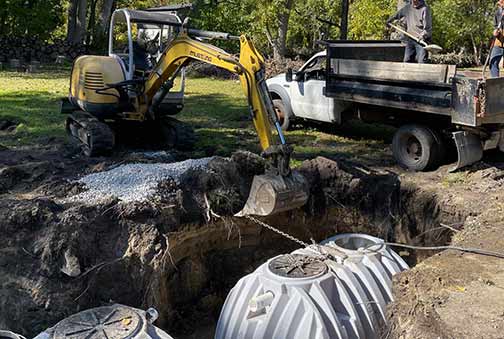
One of the easiest things for septic tank owners to forget is that their tanks will not last forever. Because they are subject to biochemical, hydrological, thermal, and physical pressures, a septic tank starts to deteriorate as soon as it is installed in the ground.
Over 18 to 40 years, your septic tank will degenerate to the point where it needs to be replaced. At the end of its useful life, a septic tank becomes less efficient. Problems in the system will also multiply, and the cost of fixing them will increase, warns the OKC Homes 4 You experts.
Failing to replace a septic tank after it reaches this point will cause problems for your building, drainage system and the environment. Three major issues you are likely to see in your home if your septic tank is damaged or losing some of its functionality are:
- More drain issues in the home: A malfunctioning septic system will fail at what it is supposed to do – treat wastewater. A failed septic tank will also release untreated or partially treated wastewater into the natural environment.
- Contaminated water: If untreated water flows into your leach field, it can percolate through the soil and enter groundwater systems and nearby wells. This contaminated water will cause illness and epidemics if it enters the drinking water supply.
- Structural damage: An aged septic tank increases the risk of foundation problems because it amplifies the possibility of water leaking into the base of your building. Failing septic systems also constitute a flooding hazard in your home.
However, you can avoid these problems if you replace the septic tank before it can cause damage. To do that, however, you need to know the signs that your septic tank is in trouble. What are the signs that a septic tank has reached the end of its service life?
6 signs that the septic tank in your Illinois home needs to be replaced
Most Illinois homes rely on septic tank systems for the smooth functioning of their drainage systems. If your home is one of them and you are concerned about the fitness of your septic systems, here are six signs that tell you when it is time to replace your septic tank.
Slow drains
A damaged septic tank will interfere with the wastewater flow from your drains. If you have a problem with slow drains in more than one plumbing fixture in your home, your septic tank is probably in trouble. Slow drains don’t mean you have to replace your septic tank. They are a sign that issues in the septic tank should be investigated.
Greener grass in the leach field
Excessively lush grass above or around your leach field is a bad sign. It can be due to leaks in the septic tank or problems in the leach field. If the pipes in your leach field are clogged they will leak. That is not fully treated before being discharged into the leach field.
Foul odors in and around the home
A functional septic tank will not release foul odors into the atmosphere. The septic tank will only emit foul odors if it is not working. That may be due to the tank being in dire need of immediate pumping. It could also be due to a malfunctioning vent pipe or because the septic tank is cracked.
Sewer backup
This extreme problem only happens when a septic system has failed. But before your sewer line can back up into your home, the problem will often be preceded by bad odors and gurgling sounds from your drains. Sewer line backup results from clogs and blockages in the sewer line or septic tank. You can avert this disaster if you follow these early warning signs.
Standing water in your yard
This problem does not always occur in the form of pools of water in your yard. You are more likely to see patches of wet or soggy soil in the yard. In addition to these wet areas, you may notice an increase in pests on your property. These pests – insects, reptiles and rodents – will often be drawn to the areas in your yard where water is pooling.
The age of the septic tank
A septic tank becomes less efficient as it nears its retirement age. Avoid waiting down the road. This step ensures you are not at the mercy of unexpected issues in your septic system.
To conclude, a failing septic tank poses a huge problem to your family’s health, home and the environment. It also exposes you to the risk of costly fines from the authorities. If the septic tank in your Illinois home is damaged, you may want to talk to an experienced plumber.

